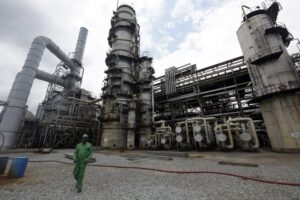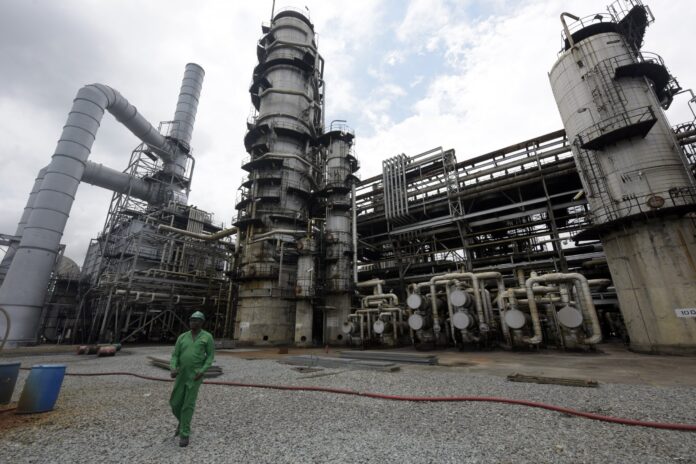The Port Harcourt Refining Company (PHRC) has explained that its recent reduction in operations was a strategic decision to accommodate ongoing facility improvements, not a halt in activities.
This clarification was made on December 1 during a media tour of the refinery, following reports suggesting a cessation of petroleum product loading at its gantry.
Moyi Maidunama, Executive Director of Operations at the Nigerian Pipeline and Storage Company Limited (NPSC), emphasized that operations were continuing, albeit at a reduced scale to facilitate upgrades.
“We are evacuating the refined products from the refinery, and this is obviously going to be a continuous process. We have done a couple of trucks today and intend to do many more today,” Maidunama said.
“So, the operations were not halted. It was obviously reduced due to some improvements that we needed to make. We are managing the process with the number of trucks available today, using a few loading arms for evacuation. This should be resolved soon.”

He assured that product distribution remains unaffected, with several trucks loading refined products during the tour.
Despite the progress, Molokwuu Joel, terminal manager of the Port Harcourt depot, highlighted low turnout of tanker drivers as a challenge to the refinery’s operations. He said the depot has begun distributing products, including petrol, kerosene, and diesel, but faced delays due to the weekend schedule.
“We have our loading arms operational, and we have been begging them (petroleum marketers) to come in since yesterday. But because today is the weekend, they have not turned up,” Joel explained.
“If you give us 100 trucks today, we will evacuate them in less than five hours. So, it is not our problem if there are no loading trucks; it is the tanker drivers’ problem. We have been pleading with them since yesterday, and only after much persuasion this morning did they show up.”
Joel also noted that while the facility has 11 operational loading bays, only three are currently being used due to their efficiency, with each bay capable of loading three trucks in 15 minutes.
Ibrahim Onoja, Managing Director of PHRC, shed light on the significant improvements the refinery has undergone to enhance its capacity and dependability.
“The plant is running, and we are trucking out our products. We’ve carried out a massive revamp, replacing most of the equipment, including pumps, instrumentation, and cables. What we’ve done here is a significant upgrade of the facility,” Onoja said.
The Port Harcourt refinery resumed crude oil processing on November 26 after years of inactivity. It also commenced loading petroleum products for distribution by trucks.
According to the Nigerian National Petroleum Company (NNPC) Limited, the refinery currently operates at 70 percent of its installed capacity, with plans to scale up to 90 percent.




